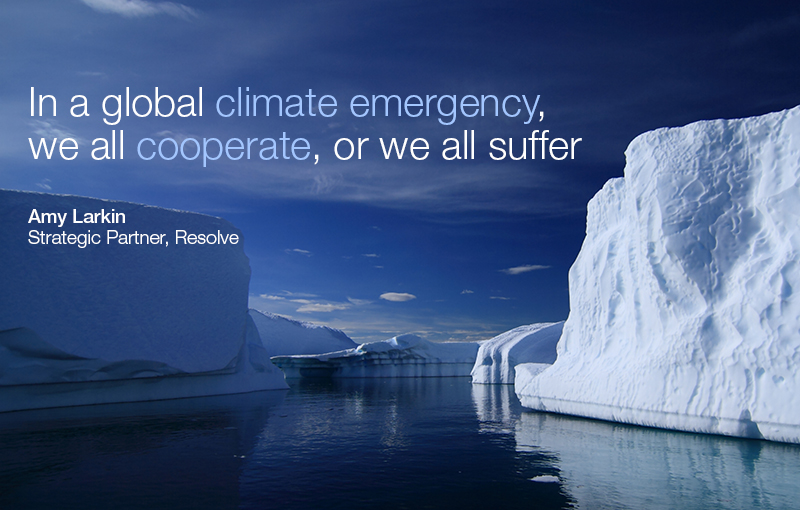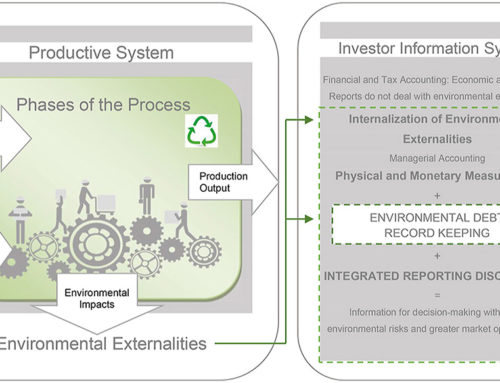First published by the World Economic Forum
“You don’t need a weatherman to know which way the wind blows,” Bob Dylan famously sang. You don’t need the UN secretary-general to know that climate change has arrived early – ahead of scientists’ most dire predictions. But the messages resounding from the global stage are encouraging. There is now a clarion call for radical change from vast numbers of political and business leaders. It almost feels as if we have finally reached a tipping point.
Leaders of business and government are beginning to connect economic prosperity with environmental stewardship and climate stability. This is the foundation for creating a low-carbon economy in the 21st century. Companies and governments that do not participate in this “solutionary” approach will find themselves on the wrong side of the balance sheet, as well as the wrong side of history.
Brilliantly, Ban Ki-moon has invited businesspeople and governments to announce joint transformative initiatives and I am heartily applauding the strong words emanating from the General Assembly floor, where speakers are acknowledging the severity and imminence of the climate crisis. These nations must be held to their words as they negotiate a new climate agreement over the coming year.
Positive signs abound. A few days ago, 347 investors from around the world, who manage $24 trillion in assets, announced their support for a strong UN climate deal in Paris 2015. The board of the Rockefeller Brothers Fund, the heirs to the world’s first great oil fortune, just announced their divestment of fossil fuels from their portfolio. Many other corporations are announcing large-scale transformative projects and processes.
But we are deceiving ourselves if we think these fine gestures will deliver a low-carbon economy. Scientists estimate that we need to eliminate more than 80% of our greenhouse gas emissions by 2050. The role of business in fixing our environmental problems can’t be overstated, but a company here and a company there won’t even come close.
Eliminating fossil fuels from our everyday lives and huge business interests is a monumental task. We must replace them in our food, water and transportation systems, as well as our manufacturing and electricity generation. Untangling and changing these systems is for the sharp of mind and strong of heart. A price on carbon will affect everyone, especially nations that are just now attaining industrial-era wealth.
China is now investing $100 billion in Indian infrastructure. This is the moment when the growth of these two great nations can be tied to the long-term well-being of their peoples and industries. Both countries noted their desire for India to emulate China’s hyper-growth with this new infrastructure. But by its own estimate, in 2010, 3.5% of China’s GDP was caused by environmental degradation, and its air, water and food quality continue to worsen. Is this a good investment? A global price on carbon would help shape new infrastructure and lock in 50-year projects with 50-year paybacks. The clean stuff would come out ahead on all fronts — financial, environmental and social.
As an American, I acknowledge that my nation became wealthy while deferring the payments for its contribution to climate change; the bill is now due. It is partially the responsibility of the US to provide incentives for emerging economies to embed in their financial ledgers long-term consequences and costs. Developing large-scale fossil fuel infrastructure on American soil does not lower our financial or environmental debt; it makes a bad situation worse and sends a terrible signal to the rest of the world.
One (relatively) simple solution that would remedy our flawed accounting paradigm is to allow accelerated depreciation for green infrastructure and capital investments. This would allow the savings in energy, waste, water costs (and impacts) to be attached to the slightly higher costs of green infrastructure. The biggest polluters would no longer be able to make the biggest profits.
Extreme weather has become the new normal; we must make these new business rules the new normal as well.
As a group of humans coexisting on the planet, from the UN to the World Economic Forum, the regional planning commission in Bangkok to the school board in Sao Paolo, the International Accounting Standards Board to FIFA, all of us must find the courage to create a thriving and healthy economy in the 21st century.
We must align the rules of business with the laws of nature.





